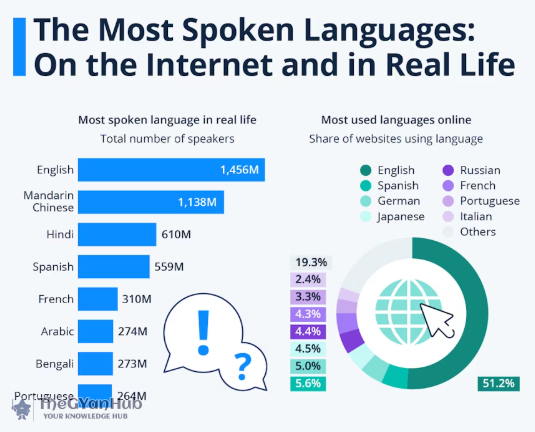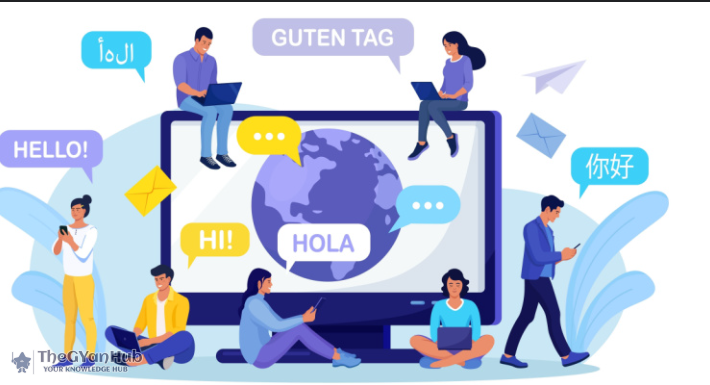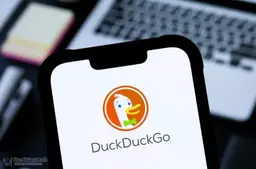I’m a passionate writer who loves exploring ideas, sharing stories, and connecting with readers through meaningful content.I’m dedicated to sharing insights and stories that make readers think, feel, and discover something new.
The Rise of Linguistic Diversity in Tech
In an era where technology and globalization intersect, the ability to speak multiple languages is becoming an increasingly valuable skill. Companies are recognizing the importance of linguistic diversity, not just for communication, but also for cultural insights and market expansion. As a result, your native language might just be your next tech skill.

With the rise of AI and machine learning, the demand for language-specific data is growing. This data is essential for training models that can understand and process different languages. As such, tech companies are actively seeking individuals who can contribute to this data pool, making native language speakers highly sought after.
Why Native Language Skills Matter
Native language skills offer unique advantages in the tech industry. They provide a deep understanding of cultural nuances, which is crucial for developing user-friendly applications and services. Furthermore, native speakers can help bridge the gap between technology and local markets, ensuring that products are relevant and accessible to diverse audiences.

For instance, consider the development of voice recognition software. Native speakers can provide invaluable feedback on pronunciation and dialect variations, improving the software's accuracy and usability. This is just one example of how native language skills can enhance tech projects.
Opportunities in Tech for Multilingual Professionals
The tech industry offers numerous opportunities for multilingual professionals. From localization and translation services to customer support and content creation, there are various roles where language skills are a significant asset. Moreover, as companies expand into new regions, the need for language expertise will continue to grow.
Localization and translation
Customer support
Content creation
Data annotation for AI
These roles not only require language proficiency but also an understanding of cultural contexts. This combination of skills can set candidates apart in a competitive job market.
Preparing for a Linguistically Diverse Future
As the tech industry evolves, it's crucial for professionals to adapt and embrace linguistic diversity. This means not only honing language skills but also staying informed about technological advancements and market trends. By doing so, individuals can position themselves as valuable assets in a rapidly changing landscape.

Further, educational institutions and training programs are beginning to recognize the importance of language skills in tech. Courses that combine language learning with technical training are becoming more prevalent, preparing the next generation of tech professionals for a multilingual world.
Conclusion
In conclusion, your native language is more than just a means of communication; it's a potential tech skill that can open doors to new opportunities. As industries continue to globalize, the demand for linguistic diversity will only increase, making now the perfect time to leverage your language skills in the tech sector.
Further Reading
Related articles in this category

World News
PM Modi Unveils Micron's State-of-the-Art Facility in Gujarat, Paving the Way for India's Semiconductor Future
February 28, 2026
Prime Minister Narendra Modi inaugurated Micron's advanced semiconductor facility in Sanand, Gujarat, marking a significant step in India's pan-India semiconductor mission. This initiative aims to bolster the country's position in the global semiconductor supply chain.

World News
Affle 3i Limited Secures Two New Patents in India for Innovative Advertisement Technology
February 28, 2026
Affle 3i Limited has been granted two new patents in India, enhancing its capabilities in advertisement technology. This development signifies a major step forward in the company's innovative approaches to digital marketing.

World News
Bill Clinton Testifies: 'I Saw Nothing, Did Nothing Wrong' in Epstein Files
February 27, 2026
In a recent deposition, former President Bill Clinton asserted his innocence regarding the Epstein files, stating, 'I saw nothing, and I did nothing wrong.' This statement has sparked discussions and debates across various platforms.
native languagetech skilllinguistic diversityglobalizationAImachine learningmultilingual professionalslanguage datalocalizationtranslation






